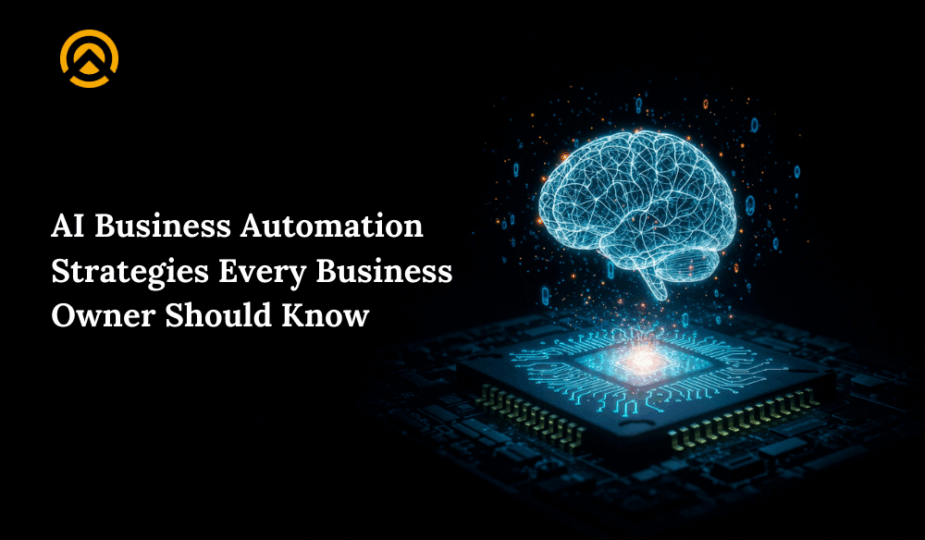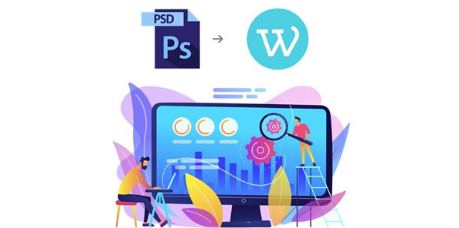In the current competitive and speedy business world, it is not an option to use Artificial Intelligence; it is a need to grow and achieve long-term success. Companies that use automation driven by AI will be able to drive efficiency, savings, and make more informed (data-driven) decisions. Whether it is better customer experiences or more efficient internal processes, AI can remodel virtually every part of business administration.
Nevertheless, implementing AI is a challenge, and its use is strategic to many business owners. It is important to know the areas and methods of applying automation in order to have significant results. The guide outlines key AI business automation strategies that every business owner must know and the emerging trends that companies need to consider in order to remain competitive and ready to face the future world of intelligent, automated business operations.
1. Automate Customer Care With Artificial Intelligence Chatbots
Customer care has transformed as a result of using AI-powered chatbots. They are capable of responding to the typical questions, processing the orders, and sending personal recommendations. By adopting AI chatbots, companies will cut down on the speed at which they respond to customers, the amount of money they spend on the exercise, and the customer satisfaction level. Then you have a choice: the chatbot platform to merge with the rest of your systems.
2. Streamline Marketing Campaigns with AI
Wholesale AI has the potential to transform how companies do marketing. These AI utilities evaluate the customer information to find trends, future-cast behavioral activity, and optimize marketing campaigns. As an example, AI may be used to figure out the most opportune time to send emails, individualizing offers to customers, or anticipating which products will stimulate the maximum sales. This enables companies to work in the sphere of strategy instead of routine.
Read: Common Structural Issues in Delaware Homes and How an Engineer Can Help
3. Optimise Inventory Management
There is a variety of inventory to be maintained, and it is a time-consuming process. Artificial AI systems can predict the demand, monitor the inventory, and determine the trends that will not be discovered by the human eye. This decreases an over-supply of inventory and eradicates a lack of stock, as well as eases congestion. Organizations that are heavily dependent on real-time information and predictive analytics to remain in business can save and become more efficient in their operations.
4. Boost AI-Driven Analytics to Make Decisions
It means the use of AI analytics can make more accurate decisions. It is able to handle a large quantity of data, identify trends in the data, and give an analysis that can be employed. The business owners can use AI to predict market trends, the behaviour of their consumers, and review performance statistics. With AI business automation solutions, this will lead to better and informed decision-making rather than basing on gut feeling.
5. Automate Routine Administrative Tasks
It is not only the sector facing customers or performing marketing activities that can use IA; internal processes can also be optimized in the same way. Invoice processing, scheduling, and data entry are a couple of examples of work that can be automated through AI. Businesses will be able to spend more time concentrating on their growth and innovation as human error is eliminated, and employees spend less of their time on data collection and management.
6. Implement AI for Sales Forecasting
It is imperative to predict the sales trends in business planning. AI algorithms will help perform all of that and predict future sales more precisely based on the past sales data, seasonality, and external influences. Business owners will be informed enough to make wise decisions on the amount of production, marketing, and resource deployment.
7. Implement AI on predictive maintenance and operations
AI can also be applied in optimizing the operations, including predictive maintenance, other than in delivering customer service and promotion. The IA systems are capable of monitoring equipment and detecting anomalies and predicting failures ahead of time. The preventive maintenance reduces failures by reducing the time of downtimes, extends the life cycle of such equipment, and hence saves costs in a great way.
Case Studies or Real-Life Examples
AI is proving to be very useful in the automation of many businesses across many industries:
1. Amazon
Amazon has integrated machine learning and automation in processing its inventories and making demand forecasts, as well as optimizing its warehouses. Their predictive analytics aids the ability of ensuring that popular items are never out of stock and that they reach the customers as fast as their production. This reduces operational costs and increases the satisfaction levels of the customers.
2. Sephora
Sephora utilizes artificial intelligence tools to give individual makeup suggestions and virtual trials. AI also makes its sales because of the personalized shopping experience generated with the analysis of the preferences customers have and the history of purchases.
3. UPS
Applied Thinking AI can be used to monitor delivery vehicles to predict maintenance before the vehicles break down. That lowers downtime, eliminates cost-intensive repairs, and manages to deliver products timely, which is one of the examples of how AI can enhance operations.
4. Netflix
Netflix uses AI code to study watch behavior and recommend content to personal consumers. Such automation makes users engaged, retaining, and subscribing to the platform because people receive highly personalized experiences.
5. Coca-Cola
Coca-Cola uses AI to collect social media and consumer data, making it better at its marketing efforts. AI assists in finding patterns, estimating the level of popularity of a product, and forming specific offers that allow engagement and brand loyalty.
Conclusion
Business automation is not the future anymore since it has become a necessity in terms of growing, efficiency, and agility. AI has the potential to transform a company in the form of chatbots and marketing optimization, to predictive analytics and customer experience personalization. In the future, AI will send dynamic and predictive solutions that will give the companies a competitive advantage. Firms that integrate AI-driven automation today save time and money as they are set to be equipped dynamically to involve data-driven operations in the future. The tactical use of AI with Artificial Intelligence consulting services will ensure a sustained growth trend with an ultimate increase in customer satisfaction and future prosperity.
Author’s Bio:
James Thomas is a business technology strategist and AI automation consultant who helps organizations streamline operations and unlock growth through intelligent automation. James writes about the future of digital transformation, making complex technologies accessible and actionable for business leaders.










